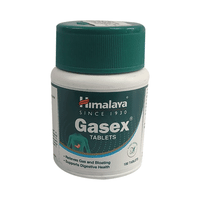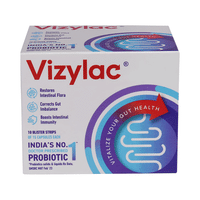Alox Suspension Orange
Rs.101for 1 bottle(s) (170 ml Suspension each)
Available in other variants
Composition FOR Alox
Aluminium Hydroxide(200mg/5ml),Dimethicone(25mg/5ml),Milk of Magnesia(200mg/5ml)food interaction for Alox
alcohol interaction for Alox
pregnancy interaction for Alox
lactation interaction for Alox
food
alcohol
pregnancy
lactation
Alox Suspension Orange is to be taken with food.
None
None
CAUTION
It is not known whether it is safe to consume alcohol with Alox Suspension Orange. Please consult your doctor.
CONSULT YOUR DOCTOR
Information regarding the use of Alox Suspension Orange during pregnancy is not available. Please consult your doctor.
CONSULT YOUR DOCTOR
Information regarding the use of Alox Suspension Orange during breastfeeding is not available. Please consult your doctor.
CONSULT YOUR DOCTOR
SALT INFORMATION FOR Alox
Aluminium Hydroxide(200mg/5ml)
Uses
Aluminium Hydroxide is used in the treatment of acidity, intestinal ulcers and stomach ulcers.
How it works
Aluminium Hydroxide is an antacid and alkalizer.
Common side effects
Constipation, Vomiting, Difficulty in urination, Nausea, Chalky taste, Drug toxicity, Decreased phosphate level in blood, Decreased magnesium level in blood, Milk-alkali syndrome, Rebound hyperacidity, Softening of bones, Fecal impaction (hardened stool that stays stuck in the rectum or lower colon), Abdominal cramp, Abdominal pain, Central nervous system problems, Tarry stools, Hematemesis (vomiting blood)
Dimethicone(25mg/5ml)
Uses
Dimethicone is used in the treatment of bloating and abdominal pain.
How it works
Dimethicone is an anti-foaming medicine. It disintegrates gas bubbles and allows easy passage of gas.
Common side effects
Upset stomach, Diarrhea
Milk of Magnesia(200mg/5ml)
Uses
Milk of Magnesia is used in constipation.
How it works
Milk of Magnesia works by drawing water into the intestine through osmosis, which makes the stool soft and easier to pass.
Common side effects
Diarrhea, Stomach cramp
SUBSTITUTES FOR Alox
No substitutes foundExpert advice FOR Alox
- The Aluminium Hydroxide should be used only for occasional relief from increased stomach acid. Do not take it for more than 2 weeks, unless otherwise prescribed by the doctor.
- Avoid Aluminium Hydroxide, if you show signs of appendicitis or inflammed bowel (such as lower abdominal pain, cramping, bloating, nausea, vomiting). Please consult your doctor.
- Do not take the Aluminium Hydroxide at least 2 hours before or after taking other medicines. It may interact with other medicines.
Frequently asked questions FOR Alox
Aluminium Hydroxide
Q. How does Aluminium Hydroxide work?
Aluminum hydroxide belongs to a class of medication call antacids. It acts by neutralizing the acids released in the stomach thus treating irritation of stomach lining
Q. Is Aluminium Hydroxide an alkali/ weak base/strong base/amphoteric?
Aluminium Hydroxide is a strong base and is amphoteric
Q. Is Aluminium Hydroxide safe?
Aluminium Hydroxide is safe when taken for an indication and at a dose strictly instructed by your doctor
Dimethicone
Q. Does Dimethicone kill lice, pubic lice, nits and scabies?
Dimethicone may kills lice, pubic lice and scabies. Dimethicone does not kill nits
Q. Is Dimethicone safe?
Dimethicone is safe if used as recommended. In case of any side effects, consult your doctor
Q. Is Dimethicone safe for natural hair or does it dry out hair?
Dimethicone is safe and does not dry out natural hair, if used as recommended. However, it may occasionally cause hair loss. In case of any side effects, consult your docto
Milk of Magnesia
Q. Is it safe to take Milk of Magnesia daily?
Milk of Magnesia should be taken only as advised by the doctor. Milk of Magnesia is safe to use for minor or occasional cases of constipation. It is not for long-term use. Using it regularly may cause the body to become dependent on it, making it difficult for a person to pass stools without using Milk of Magnesia.
Q. Will Milk of Magnesia cleanse your colon?
Milk of Magnesia rapidly cleanse the bowel by causing a watery diarrhea. It works by pulling more water into the intestines, which is called osmosis. When there is more water in the intestines, the stool becomes softer or even watery and is easier to pass.
Q. How long does it take for Milk of Magnesia to start working?
Milk of Magnesia usually starts working within 30 minutes to 3 hours. It works by increasing the fluid in the small intestine, thus making stools softer and easier to pass. As a result, a bowel movement is stimulated by causing a watery diarrhea.






















